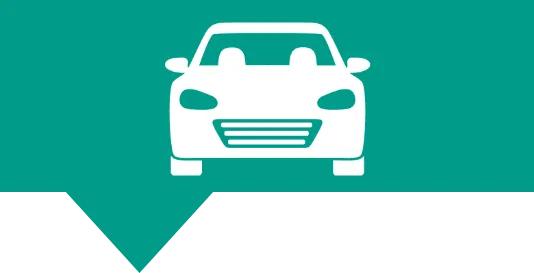If you’re a seasoned traveler, you probably have your own money-saving, stress-reducing tricks to make the experience more enjoyable.
But if not, here are a few travel hacks to consider.
When looking at airfare:
As you begin to shop for airfare, delete your browsing history in between searches. By clearing your cookies and internet browsing history for a particular website, you’re not appearing as a return visitor to a website. That’s a good thing. Otherwise, when the website realizes you want that flight … the price starts to creep up. Your family techie can help if you’re not sure how to clear your browsing history and cookies.
Shop for airfare early using flight or travel comparison websites. But don’t book your flights through them. Instead, note the flight number, delete your browsing history, and then book directly with the airline. (If you’ll be checking a bag, choose an airline that includes free checked bags.) Industry experts recommend booking your ticket anywhere from three or four months out to three weeks out. Depart on the cheapest travel days: Tuesday, Wednesday or Saturday.
Travel during “shoulder season” to get lower rates — typically April through mid-June and September through October in many areas of the world. Travel rates will generally be lower during this time. And you’ll still have decent weather, fewer crowds and enough daylight to enjoy all the sights.
When preparing for your trip:
See your doctor. Especially if you have a chronic health condition or have recently had surgery. If traveling to a foreign country, get up-to-date vaccines.
Consider travel insurance. Contact your health insurance provider to confirm your coverage in your travel region. If there’s a medical emergency, travel medical evacuation insurance can help cover the expense of getting the person to adequate medical care.
Paperwork. Print and make digital copies of passport, driver’s license and debit card. Have these ready on your phone and in a carry-on in case you lose them or they’re stolen.
Keep your meds with you and prepare for TSA rules. Keep several days of medications with you, and know that some medical conditions can raise flags at security checkpoints. Surgical hip or knee implant, for example. Your physician can provide documentation on the device or if you require liquid medication with you.
Getting ready for a road trip? Make sure your car gets a tune-up. By getting fluids, filters, etc., checked, you’ll have done your best to make sure your car is running at optimal performance. That’ll mean less likelihood of car trouble. And by having the proper air pressure in your tires, you’ll get better gas mileage, which means less money spent on gas.
Plan your route. If you plan your route ahead of time, you can avoid backtracking or driving further than you need. And along those lines, if it’s possible based on your route, avoid tolls. There’s an option to avoid tolls in most GPS systems. Set that before you go.
Sign up for gas discount cards. Most of the major gas brands have free discount card programs. Sign up for them to save money on gas.
Get a warehouse club membership. If it makes sense for you to have this year-round, get a warehouse club membership (Costco and Sam’s Club are two examples). Gas is cheaper, plus the buying-in-bulk thing might help with the next tip.
Use a good-quality cooler and pack healthy food and snacks. Try to avoid expensive fast food stops and rely on your own provisions you can buy beforehand at a fraction of the cost: trail mix, grapes, string cheese, apples, baby carrots, a loaf of bread and good old peanut butter are just a few ideas.
Use a refillable water bottle and keep a gallon (or more) container of water in the car. If your cooler’s big enough, start your trip with a frozen gallon of water in it. A great way to store your water while it keeps your food chilled.
Notify your bank or credit card company
Bring your own mobile charger. It’s best to stay away from public USB ports in the airport. Bad actors can load malware onto public USB charging stations to maliciously access electronic devices while they’re being charged.
Turn left. People usually turn to the right when entering security lines. Head to the left lines — they’re usually faster.
Bring your own disinfecting wipes. Clean your tray table, arm rests, etc. once you sit down.
Stretch your legs. Being seated for a long period of time can increase the risk of developing deep vein thrombosis brought on by lack of movement. Try to sit near an aisle seat that’ll make it easier for you to stand, stretch and use the restroom.
Do the speed limit. Not only is it safer than “putting the pedal to the metal,” it’ll save you money: The faster you drive, the more gas you burn.
Rent a car (if necessary), but consider skipping the car rental insurance. If your car is an oldie but goodie, you might consider renting a car — even though it will increase the overall cost of your trip. If you do, you might be able to skip the rental insurance. It's possible, your existing car insurance will cover any mishaps, but check with them first.
Stop every couple of hours if not more to stretch your legs and refresh with a snack you’ve got in the car. See the tip about the risk of developing deep vein thrombosis brought on by lack of movement. Stop and move around!
Eat out at lunch and happy hours. When you do treat yourself to a restaurant meal, lunches are sometimes less expensive than the dinner menus. And happy hours aren’t just about cheap drinks. Many have discounted appetizers and smaller plate offerings. Or split a meal with your loved one. The portions are usually huge.
Create a staging area for all things that can get scattered throughout your hotel room. Take a hand towel from the bathroom and spread it out on the desk. Put your room key here, your car key, sunglasses, wallet, phone chargers, etc. Everything will be visible and in one spot instead of scattered all over the room.
Tell the hotel staff if you’re celebrating a special occasion. You might receive a surprise upgrade or bottle of champagne as a gift.
Semi-unpack. Try to remove only the necessities from your luggage. This decreases your chances of forgetting something when it’s time to pack up for home.
Place the “Do Not Disturb” sign on the door when you leave your hotel room, even if only for a few minutes. This adds a layer of security if you have to leave your computer or other valuables in the room for a short time.
If you’re recently retired and getting ready to satisfy your wanderlust, these tips will become second nature in no time.
You may also like …
3 min read






